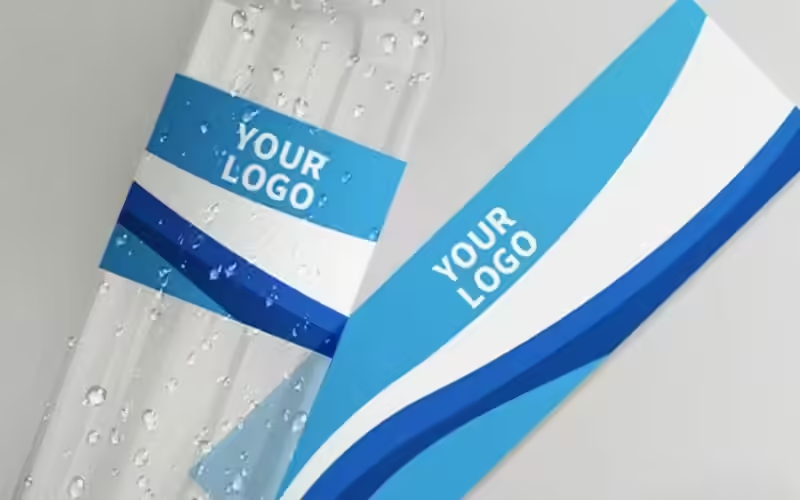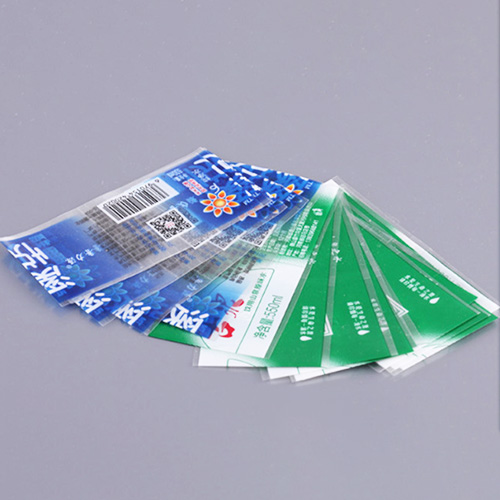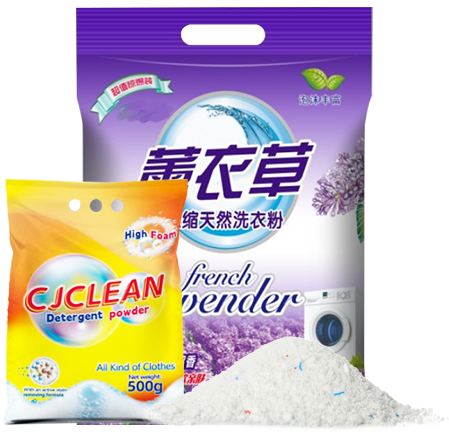مرحباً بكم في مدونتي!
قبل أن نتعمق في المحتوى، يسعدني انضمامكم إليّ على منصاتي للتواصل الاجتماعي، حيث أشارك المزيد من الأفكار، وأتفاعل مع المجتمع، وأنشر التحديثات. إليكم كيفية التواصل معي:
فيسبوك:https://www.facebook.com/profile.php?id=61573740643310
لنبدأ رحلتنا معًا. آمل أن تجدوا هذا المحتوى ثريًا وجذابًا وقيّمًا.
جدول المحتويات
مقدمة

تُعدّ الملصقات ذاتية اللصق أدواتٍ أساسية للشركات التي تسعى إلى توصيل معلومات المنتج المهمة بفعالية. هذه الملصقات متعددة الاستخدامات، التي تُلصق على المنتجات أو العبوات أو غيرها من الأسطح، تنقل تفاصيل أساسية مثل هوية العلامة التجارية، واستخدام المنتج، ومكوناته، وتواريخ انتهاء الصلاحية. اختيار الملصقات المخصصة المناسبة يُؤثر بشكل كبير على حضور منتجك في السوق، ونظرة العملاء إليه، وامتثاله للأنظمة. يستكشف هذا الدليل الشامل الاعتبارات الرئيسية لاختيار الملصق الذاتي اللصق المثالي، لضمان توافقه مع احتياجات منتجك وتعزيز جاذبية علامتك التجارية.
فهم دور الملصقات ذاتية اللصق
تُشكّل الملصقات المُخصصة حلقة وصل بين منتجك وعملائك. فهي أكثر من مجرد ملصقات؛ إنها أدوات استراتيجية تُوفّر الوضوح والفعالية. تُبرز الملصقات المُخصصة المُصمّمة بإتقان نقاط البيع الفريدة لعلامتك التجارية، وتُرشد المستهلكين في قراراتهم الشرائية، وتضمن الامتثال لمعايير الصناعة. سواءً كنت تُصمّم منتجات غذائية أو مستحضرات تجميل أو سلعًا صناعية، فإن الملصقات المُخصصة المُناسبة تضمن تميز منتجك مع تقديم معلومات أساسية بطريقة سهلة الاستخدام.
أهمية اختيار الملصقات المخصصة المناسبة
يعد اختيار العلامات المخصصة المناسبة أمرًا بالغ الأهمية لعدة أسباب:
- تمثيل العلامة التجارية:إن الملصق المصمم جيدًا يعزز التعرف على العلامة التجارية وينقل الجودة.
- الامتثال التنظيمي:تتطلب بعض الصناعات معلومات محددة على الملصقات لتلبية المعايير القانونية.
- معلومات المستهلك:توفر الملصقات تفاصيل أساسية مثل المكونات وتعليمات الاستخدام وتواريخ انتهاء الصلاحية.
- الكفاءة التشغيلية:يمكن لمادة الملصق المناسبة والمادة اللاصقة أن تعمل على تبسيط الإنتاج وتقليل النفايات.
إن اتخاذ خيار مستنير يضمن تميز منتجك على الرف وتلبية جميع المتطلبات الضرورية.
العوامل الرئيسية في اختيار ملصق ذاتي اللصق
يتطلب اختيار الملصقات المخصصة المناسبة تقييم عدة عوامل لضمان استيفائها للمتطلبات الوظيفية والجمالية. فيما يلي الاعتبارات الأساسية التي ستساعدك في اتخاذ قرارك.
اختيار المواد للملصقات المخصصة
تؤثر مادة الملصقات المخصصة بشكل كبير على متانتها ومظهرها وملاءمتها لمنتجك. تشمل المواد الشائعة الورق والفينيل والبوليستر والبولي بروبيلين، ولكل منها خصائص مميزة. على سبيل المثال، تُعد ملصقات الفينيل المخصصة مثالية للمنتجات المعرضة للرطوبة أو الظروف الخارجية نظرًا لطبيعتها المقاومة للماء. من ناحية أخرى، تُعد الملصقات الورقية اقتصادية ومناسبة للمنتجات الداخلية مثل الكتب أو السلع الجافة. عند اختيار مادة الملصق اللاصق، ضع في اعتبارك بيئة منتجك وظروف التعامل معه.
نوع المادة اللاصقة وتأثيرها
يُحدد اللاصق المُستخدم في الملصقات المُخصصة مدى التصاقه بمنتجك، ومدى إمكانية إزالته دون ترك أي بقايا. تُعدّ المواد اللاصقة الدائمة مثالية للاستخدامات طويلة الأمد، مثل وضع العلامات التجارية للمنتجات، بينما تُناسب المواد اللاصقة القابلة للإزالة الملصقات المؤقتة، مثل الملصقات الترويجية. أما بالنسبة للتطبيقات المُتخصصة، مثل المنتجات الآمنة للاستخدام في المُجمد، فاختر مواد لاصقة مُصممة لتحمل درجات الحرارة العالية. إن فهم خصائص اللاصق يضمن أداءً موثوقًا لملصقاتك المُخصصة طوال دورة حياتها.
اعتبارات تصميم الملصقات ذاتية اللصق
تُحقق الملصقات المُخصصة المُصممة جيدًا توازنًا بين الأداء الوظيفي والجاذبية البصرية. يجب أن يكون التصميم واضحًا وموجزًا ومُنسجمًا مع غرض منتجك. على سبيل المثال، قد تتطلب منتجات التجارة الإلكترونية ملصقات مُخصصة جريئة وجذابة لجذب المتسوقين عبر الإنترنت، بينما يجب أن تُعطي الملصقات المعلوماتية للمنتجات التقنية الأولوية للوضوح على الجمالية. ادمج نظام الألوان والشعار والخط الخاص بعلامتك التجارية لخلق مظهر متناسق. بالإضافة إلى ذلك، فكّر في أنماط تصميم مُتنوعة، مثل الملصقات الشفافة أو ذات الألوان الثابتة أو ذات الحواف الرمادية، لتتناسب مع جمالية منتجك.
الجدول: مشترك ملصق ذاتي اللصق المواد وتطبيقاتها
يوضح الجدول التالي المواد الشائعة المستخدمة في الملصقات المخصصة وتطبيقاتها المثالية لمساعدتك في اتخاذ خيار مستنير.
| مادة | الميزات الرئيسية | التطبيقات المثالية |
|---|---|---|
| ورق | فعالة من حيث التكلفة، وسهلة الطباعة، وقابلة للتخصيص | المنتجات الداخلية مثل الكتب أو عبوات الأطعمة الجافة أو القرطاسية |
| فينيل | مقاومة للماء، متينة، ألوان نابضة بالحياة | المنتجات الخارجية ومستحضرات التجميل وزجاجات المشروبات |
| البوليستر | مقاومة للمواد الكيميائية والحرارة والتآكل | المعدات الصناعية والأجهزة الطبية وقطع غيار السيارات |
| البولي بروبيلين | مرنة، مقاومة للتمزق، قابلة لإعادة التدوير | تغليف المواد الغذائية، الحاويات المرنة، المنتجات الصديقة للبيئة |
الامتثال التنظيمي للملصقات ذاتية اللصق
في قطاعات مثل الأغذية والأدوية ومستحضرات التجميل، يجب أن تتوافق الملصقات المخصصة مع متطلبات تنظيمية صارمة. على سبيل المثال، يجب أن تتضمن ملصقات المنتجات الغذائية معلومات غذائية، وتحذيرات من مسببات الحساسية، وتواريخ انتهاء الصلاحية، بينما قد تتطلب الملصقات الطبية عرض تعليمات الاستخدام أو تحذيرات السلامة. قد يؤدي عدم استيفاء هذه المعايير إلى عقوبات قانونية أو سحب المنتج. عند تصميم ملصقاتك المخصصة، راجع اللوائح ذات الصلة، مثل إرشادات إدارة الغذاء والدواء الأمريكية (FDA) لملصقات الأغذية أو معايير الاتحاد الأوروبي لمستحضرات التجميل، لضمان الامتثال.
تصميم سهل الاستخدام للملصقات ذاتية اللصق
يُعطي ملصق ذاتي اللصق سهل الاستخدام الأولوية للوضوح والبساطة. تجنّب حشو الملصق بمعلومات زائدة، فقد يُربك ذلك المستهلكين ويُؤثر سلبًا على تجربتهم. ركّز بدلًا من ذلك على التفاصيل الرئيسية، مثل اسم المنتج وميزاته الأساسية وأي تحذيرات مهمة. استخدم خطوطًا واضحة وأحجامًا مناسبة لضمان سهولة القراءة، خاصةً لكبار السن أو ذوي الإعاقات البصرية. تُعزز الملصقات المُخصصة جيدة التنظيم رضا العملاء وتُشجعهم على تكرار الشراء.
تحسين تجربة المستخدم باستخدام الملصقات ذاتية اللصق
تُسهم الملصقات ذاتية اللصق بشكل كبير في تحسين تجربة المستخدم من خلال توفير معلومات واضحة وسهلة الوصول. على سبيل المثال، يُمكن للملصق الذاتي اللصق على منتج غذائي أن يُبرز شهادات الاعتماد العضوي أو المكونات النباتية، مما يُساعد المستهلكين على اتخاذ خيارات مدروسة. وبالمثل، في مجال التجارة الإلكترونية، يُمكن للملصقات المُخصصة الجذابة بصريًا أن تُرشد المستخدمين إلى أهم ميزات المنتج، مما يُحسّن تجربة تسوقهم. من خلال إعطاء الأولوية للتصميم المُركز على المستخدم، يُمكن لملصقاتك المُخصصة أن تبني ثقة عملائك وولائهم.
دعم الكفاءة التشغيلية
بالإضافة إلى الجانب الجمالي، تُسهّل الملصقات ذاتية اللصق عمليات الأعمال. على سبيل المثال، تُتيح الملصقات التي تحتوي على رموز باركود أو رموز الاستجابة السريعة (QR) إدارة المخزون وتتبعه بكفاءة. في مجال التسويق، يُمكن أن تتضمن الملصقات ذاتية اللصق رموزًا ترويجية أو روابط لموقعك الإلكتروني، مما يُعزز تفاعل العملاء. بالإضافة إلى ذلك، تُوفر البيانات المُجمعة من تفاعلات الملصقات، مثل مسح رموز الاستجابة السريعة (QR)، رؤى قيّمة حول سلوك المستهلك، مما يُمكّن من وضع استراتيجيات تسويقية أكثر استهدافًا.
الاستدامة في ملصق ذاتي اللصق إنتاج
مع تزايد المخاوف البيئية، تسعى الشركات بشكل متزايد إلى خيارات ملصقات ذاتية اللصق مستدامة. المواد الصديقة للبيئة، مثل البولي بروبيلين القابل لإعادة التدوير أو الورق القابل للتحلل الحيوي، تقلل من الأثر البيئي لملصقاتك. إضافةً إلى ذلك، فإن اختيار الأحبار المائية أو الصويا يعزز الاستدامة بشكل أكبر. باختيارك ملصقات مخصصة صديقة للبيئة، فإنك لا تجذب المستهلكين المهتمين بالبيئة فحسب، بل تتماشى أيضًا مع اتجاهات الاستدامة العالمية، مما يعزز سمعة علامتك التجارية.
خيارات التخصيص للملصقات المخصصة
يُعد التخصيص ميزةً أساسيةً للملصقات المُخصصة، إذ يُتيح للشركات تصميم ملصقات تُلبي احتياجاتها الخاصة. من حيث الحجم والشكل واللون واللمسة النهائية، يُمكن للملصقات المُخصصة أن تُعكس هوية علامتك التجارية الفريدة. على سبيل المثال، قد تختار شركة جعة حرفية ملصقًا ذاتي اللصق بلمسة نهائية غير لامعة بتصميم ريفي، بينما قد تختار شركة تقنية مظهرًا لامعًا وعصريًا. تعاون مع مُزود ملصقات موثوق لاستكشاف خيارات التخصيص التي تُلبي أهداف منتجك وعلامتك التجارية.
خاتمة
اختيار المناسب ملصق ذاتي اللصق يُعدّ اختيار حجم وشكل الملصق المناسب خطوةً أساسيةً لضمان نجاح منتجك في السوق. بمراعاة عوامل مثل المادة، ونوع اللاصق، والتصميم، والامتثال للوائح التنظيمية، يمكنك إنشاء ملصقات مخصصة تُعزز ظهور علامتك التجارية وتجربة المستخدم. يُعدّ اختيار حجم وشكل الملصق المناسبين أمرًا بالغ الأهمية لنجاح العلامة التجارية والامتثال للوائح.
شينلونج للتغليف متخصصون في توفير ملصقات عالية الجودة ومخصصة، مصممة خصيصًا لتلبية احتياجات منتجاتكم. تفضلوا بزيارة صفحة الملصقات المخصصة لدينا للعثور على الملصق اللاصق المثالي لمنتجكم. اتصل بنا اليوم لرفع مستوى العلامة التجارية الخاصة بك مع حلول وضع العلامات التجارية المهنية.
التعليمات
ما هي استخدامات الملصقات اللاصقة الذاتية؟
تُستخدم الملصقات ذاتية اللصق لعرض معلومات المنتج الأساسية، مثل تفاصيل العلامة التجارية والمكونات وتعليمات الاستخدام، على المنتجات أو عبواتها. فهي تُعزز هوية العلامة التجارية، وتضمن الامتثال، وتُحسّن تجربة المستخدم.
كيف أختار المادة المناسبة لملصقي اللاصق؟
خذ بعين الاعتبار بيئة منتجك والغرض منه. على سبيل المثال، استخدم ملصقات فينيل مخصصة لتلبية احتياجات مقاومة الماء، أو ملصقات ورقية للتطبيقات الداخلية منخفضة التكلفة. راجع جدول المواد أعلاه للإرشادات.
هل الملصقات ذاتية اللصق صديقة للبيئة؟
نعم، يمكن صنع العديد من الملصقات المخصصة من مواد قابلة لإعادة التدوير أو قابلة للتحلل البيولوجي، مثل البولي بروبيلين أو الورق الصديق للبيئة، مقترنة بأحبار مستدامة لتقليل التأثير البيئي.
كيف يمكن للملصقات ذاتية اللصق تحسين علامتي التجارية؟
تعمل الملصقات المخصصة المصممة جيدًا على تعزيز هوية علامتك التجارية من خلال الألوان والشعارات والطباعة المتسقة، مما يجعل منتجك أكثر قابلية للتعرف عليه وجاذبية للمستهلكين.
ما هي اللوائح التي يجب أن آخذها في الاعتبار فيما يتعلق بالملصقات المخصصة؟
تختلف اللوائح باختلاف القطاع. بالنسبة للمنتجات الغذائية، تأكد من تضمين المعلومات الغذائية وتحذيرات مسببات الحساسية على ملصقك اللاصق. بالنسبة للمنتجات الطبية، أضف تفاصيل السلامة والاستخدام وفقًا لما تقتضيه القوانين المحلية.


